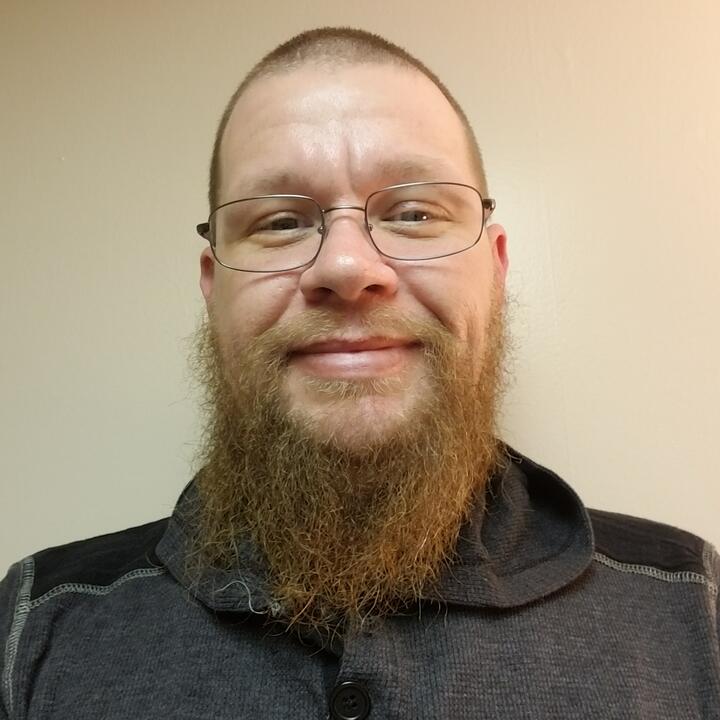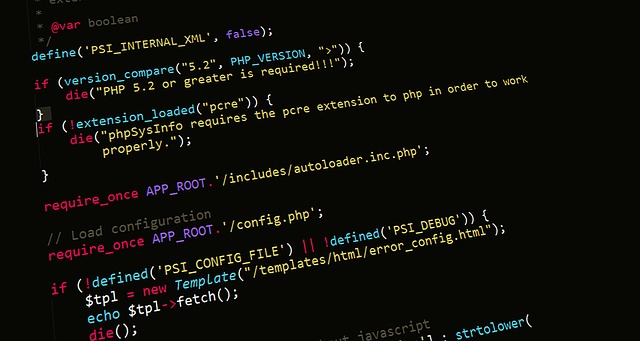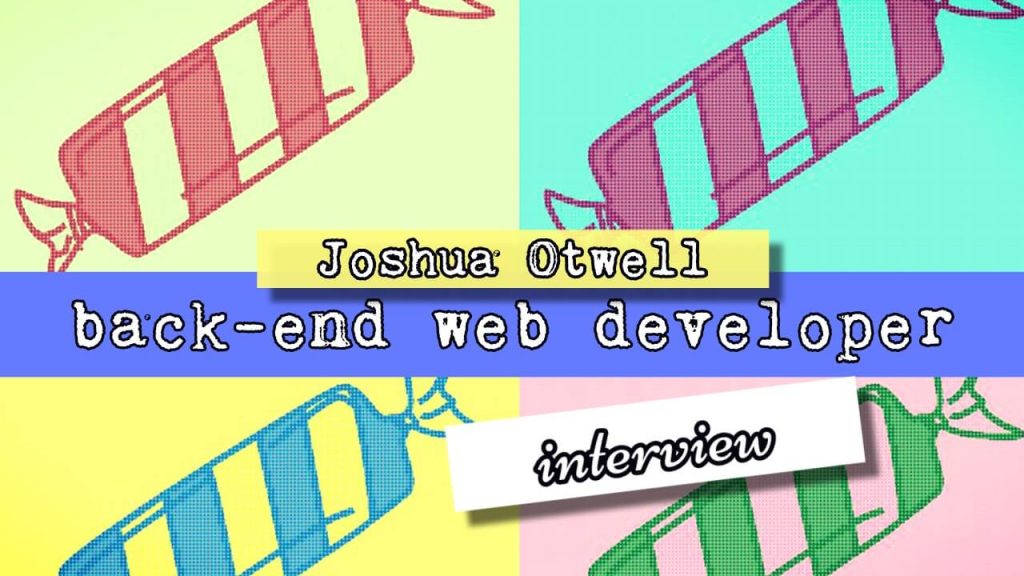✅ Is PHP still worth learning?
✅ Why do some developers hate PHP?
✅ What’s the relationship between PHP and SQL?
Today back-end web developer Joshua Otwell answers these burning questions and more.
Starting out developing Android apps in 2016, Joshua’s coding journey has spanned from PHP and SQL to XML and more.
In today’s interview, Joshua goes deep inside the back-end web development ecosystem to break it all down.
This post contains affiliate links. We may receive compensation if you buy something. Read our disclosure for more details.
1. Tell us about yourself.
I am a 45-year-old (at the time of writing) white male from Ruston, Louisiana in the United States. I have been married to my wife for 19+ years. We have 2 older daughters.
I enjoy bass fishing, reading, writing, rock/metal music, and walking/hiking.
I currently work in a dual role as a Pipeline Survey Data Analyst and Backend Developer.

2. How did you transition from pipeline surveyor to back-end developer?
I made the switch kind of laterally within the same industry/field. I realized that learning to code could provide me with an opportunity to get off the road.
I was traveling pretty much full-time for work and away from home and my family for months at a time and I was burned out on having to travel as part of my job.
I looked at it like if I learned to code, that would put me in a better position to work remotely from home…
Although I still work in the same industry and am not doing Backend web development 100% of the time (yet), I am a 100% remote worker and have not had to travel for work since the end of 2019.
For more backstory, I developed an Android app at the beginning of 2016 for myself and another couple of my surveyor buddies to help us collect – and understand – some data we were dealing with.
The app itself never went anywhere as I pulled the plug on it but I did learn enough Java and SQLite (this is where I really fell for SQL) to cobble together something usable. The main thing I learned during that entire process is how to Google and YouTube up stuff to solve problems I was facing.

Learning how to figure stuff out is crucial in programming and development.
One of the main things that helped me the most is I learned to program while using a data set I was quite familiar with and understood from a different level and perspective.
I understood the data I was looking at and knew what was what and what should be what. That in and of itself helped me solidify many concepts.
I think anyone who has the chance to work with a familiar data set should absolutely use that to their advantage. Domain-specific knowledge and expertise can help tremendously when learning to code.
Or at least it did for me.
I started with PHP in order to create a custom reporting dashboard type of application using the plain ole vanilla LAMP stack and really enjoyed learning and working with PHP. I have been using PHP since then. Probably early 2019.
3. What are some challenges you face as a back-end developer?
Since I am totally self-taught, there never seems to be a shortage of challenges.
But, that is how you learn, grow, and eventually get better.
Personally, my biggest challenge right now is learning how to write tests for my code. For whatever reason, it is kryptonite for me at this point in my development and I’m taking steps to double down on that facet.
Like I always do with whatever I am working on, I generally just figure stuff out. And, I think that is one of the biggest parts of the development hurdle is figuring things out. However, you have to.
Also, being comfortable that what works for you as an individual, might not work for someone else. And that’s okay.
For some people like myself, I am a reader (and writer). I am always Googling things up and reading them. Reading the documentation, books, and blog posts.
That’s how I learn and figure things out.

For someone else, maybe that is watching YouTube videos or taking a course (both of which I do as well when I want or need to) and that is perfectly fine as well.
Just figure out what works best for you as an individual, stay consistent and you will make progress.
Of course, the tech industry moves at such a rapid pace, staying on top of what is the latest and greatest is tough for anyone and so long as you are in this field, you’re going to have to deal with that challenge in and of itself.
4. Is it worth learning PHP this year?
I absolutely think so.
PHP is everywhere on the web. I mean, if you look at it from the WordPress space, that CMS has such a huge portion of the market share.
True, WordPress is a huge and saturated market, but I think for as long as it is around, someone who knows PHP has the opportunity or option to work within web development.
Then you have Laravel and Symfony which are both used for robust website and application development.
PHP provides a huge job market and an opportunity to work on the web. Especially for self-starters like myself.
5. Why do some developers hate PHP?
I honestly do not know why some developers dislike PHP.
I actually like and respect all programming languages and don’t place one above or below another in any sort of pecking order.
In case folks haven’t noticed, programming is hard!
So my hat is off to anyone who can (or continues) to figure out this programming thing using any language.
Yes, I use and favor PHP and SQL, but that doesn’t mean I dislike Python, Java, or Javascript. It just means I prefer and am more comfortable – and interested – with PHP and SQL.
Of course, some languages are better suited at certain tasks than others and that is totally valid in any context.
6. What is your favorite PHP feature?
You know, I am going to take the simplistic approach on this one. I use PHP’s scripting capabilities a great deal of the time, continuously learn just how powerful PHP is.
I recently leveraged several looping constructs (foreach and for loops) to build up many many (60+) MySQL Create table statements dynamically based on data from reading in an XML-like file (FXL).

Building up all the Create table strings dynamically saved me so much time without me having to create them all manually by hand.
You can really crank out some stuff with PHP’s string concatenation, the trim family of functions, and scripting capabilities.
Python shines in this area as well. I guess I just appreciate the dynamic scripting capabilities of PHP.
7. You’re also a SQL enthusiast. What’s the relationship between PHP and SQL?
SQL is my first (and favorite) programming language.
I just really enjoy writing SQL queries. Retrieving data and then providing that data back to whatever needs it with PHP is one of my favorite parts of backend PHP development.
They just seem to kind of go hand-in-hand for me.
SQL is a powerful language and can do a lot for you as a developer. PHP makes it easy to work with SQL for the web.
Having SQL knowledge and skills are definitely a plus career-wise when you are building data-driven programs and applications.
Opportunities to write SQL queries that are typically outside of the standard CRUD operations are challenging (and fun). I enjoy those the most.
8. Is the LAMP stack good for beginners?
I think so. The LAMP stack (or any of its derivatives i.e., Laravel, WordPress, Drupal, etc) has a lot of use on the web. Therefore, I think it is quite accessible for beginners to get started with.
There is good information on the LAMP stack’s individual components out there that anyone can dive into any one of those they are interested in and get started.
For me, that was SQL (via MySQL), PHP, and also being an avid Linux user.
Then, you just start integrating what you are learning of any one of those components into web development and continue to pick up the other pieces you need as you need them. That is what I do.
9. Do you think PHP will beat out Python in the long run?
Perhaps in the web, yes. But, Python is quite powerful in its own right.
And Python has a strong foothold in the data/data science world. Also in web development with Django and Flask although I’ve not used either of those frameworks myself.
So it’s really hard to say.
I don’t think either PHP or Python are going anywhere anytime soon, due to their own individual strengths, user-base, and ecosystems.
10. Tell us about your blog and OpenLamp.tech newsletter.
My blog, Digital Owl’s Prose, has actually turned into a dual learning experience of sorts for me.
Writing is just in me. I think it stems from being such a voracious reader.
Reading is absolutely by far my favorite pastime. I can go months on end (and have) without ever watching (or knowing) what is on TV.
But, I am always reading. Not a day goes by that I don’t read something.

As I got into publishing more and more consistently on my blog, a couple of things became apparent.
One, I learn a great deal about something by writing about it. Writing solidifies concepts for me that I don’t think any other medium really does.
Two, my blog is one big developer diary reference guide cheat sheet for me. I refer to my articles and blog posts all the time. It is quite the feeling to Google something up, only to land on your own blog page!
As I learn new concepts, I write about them and always have something my future self can revisit. After all, who can memorize all of this programming stuff lol?
I actually have an internal dialogue/conflict with myself as far as: “Am I a Developer who likes to write. Or a writer who just so happens to like programming and development?”
My newsletter, OpenLamp.tech, is inspired by my reading habits and also wanting to get more into email content.
I read a lot of programming-related articles, blogs, and email newsletters. Mostly focused on PHP and SQL.
I’m always bookmarking articles to read and just thought that maybe others would like a list of links to good articles that I enjoyed, found interesting, or learned something from.
So I decided to start up a free newsletter to just kind of aggregate some of the articles I enjoyed reading into a weekly digest of sorts.
I also do a deep-dive featured piece once per month in addition to the curated content. Usually covering PHP, MySQL, or CodeIgniter.
I’m still learning how to grow the newsletter readership but I do enjoy putting together the email itself and sharing it each week.
There are a ton of great writers and programmers out there sharing good knowledge and I wanted something tailored to the LAMP stack and PHP development and MySQL.
I share articles covering any of the popular PHP frameworks out there along with mostly MySQL-specific content.
My goal is to provide a resource that PHP developers enjoy reading a wide range of similarly-related topics on. Just so happens in this instance, it’s PHP/MySQL but I think something like this would work for other topics as well.
My shameless plug: sign up at openlamptech.substack.com for my free weekly newsletter.
11. Is there anything else you’d like to add?
I am so excited to be on this journey as a developer because that’s exactly what it is. A journey.
There are many challenges and things to learn (or unlearn) in any kind of development.
I just want to be the best developer I can be and help anyone I can through my writing, blogging, content creation, content curation, and knowledge.
Enjoy this Joshua Otwell interview? Check out these other web developer interviews:
- Andrei Neagoie Interview: The ZeroToMastery.io Founder Shares His Web Development Journey
- Web Dev Simplified Interview: Kyle Cook Demystifies JavaScript
- “I Was a Bit Lost To Be Honest”: Real Tech Talk with Coder Coder
- All About the Angular: Interview with Aristeidis Bampakos
- Python on the Farm: Python Developer Interview with Joy
